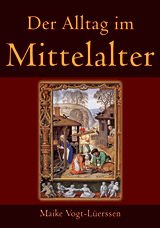Here a short description what the people of the ancient Jewish belief thought about the "unholy" body fluids, and especially the menstruation, around the time of the birth of Jesus Christ. Their opinion regarding this matter was taken over by the Christians and accepted for hundreds of centuries at least until the end of the Middle Ages:
"When a man has an emission of semen, he shall bathe his whole body in water and remain unclean until evening. All cloth or leather on which semen falls shall be washed in water and remain unclean until evening ...
When a woman has a discharge, her discharge being blood from her body, she shall remain in her impurity seven days; whoever touches her shall be unclean until evening. Anything that she lies on during her impurity shall be unclean; and anything that she sits on shall be unclean. Anyone who touches her bedding shall wash his clothes, bathe in water, and remain unclean until evening; and anyone who touches any object on which she has sat shall wash his clothes, bathe in water, and remain unclean until evening. Be it the bedding, or be it the object on which she has sat, on touching it he shall be unclean until evening. ...
When she becomes clean of her discharge, she shall count off seven days, and after that she shall be clean. On the eighth day she shall take two turtle doves or two pigeons, and bring them to the priest at the entrance of the Tent of Meeting. The priest shall offer the one as a sin offering and the other as a burnt offering; and the priest shall make expiation on her behalf, for her unclean discharge, before the Lord." (in: Hughes, Sarah Shaver, and Brady Hughes: Women in World History, Volume 1: Reading from Prehistory to 1500, New York and London 1995, pp. 71-72)

